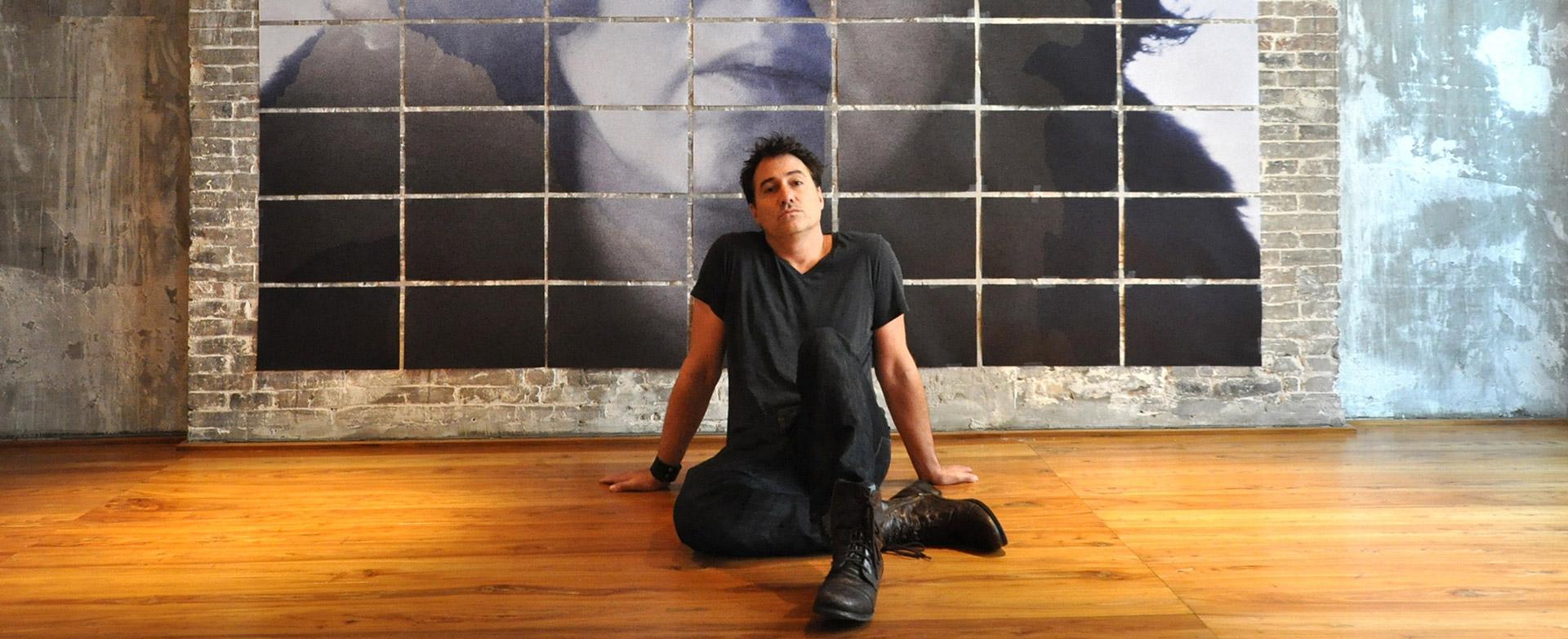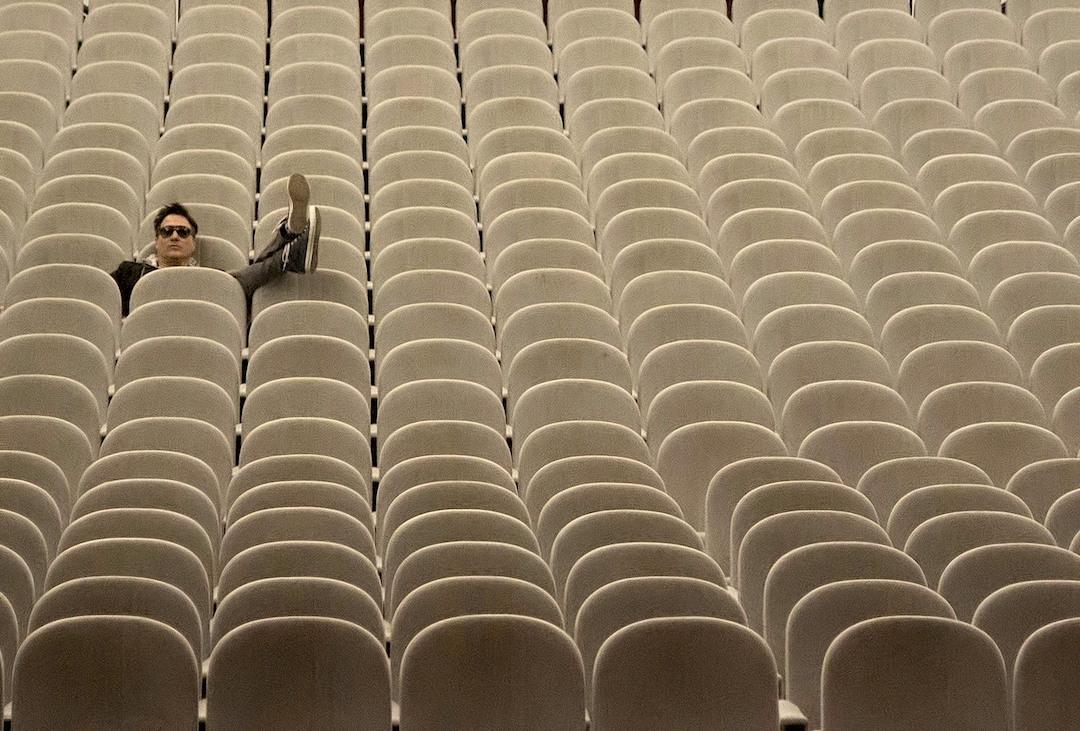
Interview with former artist-in-residence Alec Von Bargen
In a recent interview former artist-in-residence Alec Von Bargen talks about his experiences at the Swatch Art Peace Hotel in Shanghai as well as about his role as Visual Advisor at the Biennale College Cinema.
As part of this year's Biennale College Cinema Alec had the opportunity to collaborate with Pedro Collantes who's feature film 'The Art of Return' just premiered at the Venice Film Festival.
Carlo Giordanetti (CEO Swatch Art Peace Hotel): As an artist you were at SAPH in 2 different occasions, in 2013 for a residency and in 2016 for an exhibition. How were these 2 experiences different and what are your memories of it?
Alec Von Bargen: I think it important to begin by saying that I consider the Swatch Art Peace Hotel and Shanghai home. They embraced me as an artist and allowed me to evolve in both my artistic discourse and my humanity. The SAPH has always forced me to question, doubt, solve and grow… it hasn’t always been easy and at times it’s been extremely frustrating, but when I see the end result of what I’ve created at the SAPH it’s overwhelming. The first time, in 2013, I felt such a suffocating mixture of responsibility towards my hosts and a despair to further my artistic discourse that at moments I was lost, but it never took long to once again feel the inspiration and the juices began flowing again. I can honestly say that it has been one of the most productive periods of my career. As for 2016, it was without a doubt an amazing gift to be able to produce a full show for the exhibition hall at the SAPH, but what I am most grateful for is the generosity of the entire Swatch team. They allowed me to create without question, objections or obstacles and aided me in every way possible, always making sure that we were achieving the absolute best version of my vision. That’s hard to find even in the best of Museums, so for the SAPH team to nurture me so was mind-blowing.
Carlo Giordanetti: You are an artist but also a mentor, and very sensible to social causes. How these 3 elements live together and contribute to Alec as a person?
Alec Von Bargen: Although a cliché, to me being an artist is like breathing. I have no choice. It is what I was born to be, it’s who I am. I wouldn’t want to be anything else. That said, I’m not an artist that sticks to one dialogue and remains steadfast in that comfort zone. I need to be constantly swimming in foreign waters, playing in different courtyards and pushing myself to discover my voice in all realms. It is only when feeling the angst of discovering my abilities within unfamiliar mediums that I am truly creating. The fact that I began my career at a very young age as an actor, writer, director and producer and then decided to focus solely on my creations as a photographer/visual artist that I am now able to navigate both worlds: visual art and cinema. I’m a curious soul, so as far as the social causes are concerned, I believe it’s my obligation to be aware of my place within the fibre of society and of the historical moment I am a part of. I strive from researching human conflict and the strength we have to overcome. I have travelled the world over, sharing with people from all walks of life. I suppose all of this have made me a natural born storyteller and thus an ideal mentor/collaborator/playmate. I work from a place of empathy and I listen. It’s not about the film I wish to make but the best version of the film the director wishes to make. I love the work I do and am extremely proud of the friendships that have come of it.

Carlo Giordanetti: You are the Visual Advisor for the Venice Biennale College. What is your role about?
Alec Von Bargen: As Visual Advisor/Creative Consultant I work closely with all 12 director/producer finalist teams in aiding them to find the most honest, coherent and undoubtedly creative way to take their films from concept to red carpet. In the world of feature film development programs, the principal focus is almost exclusively on the screenplay; on the ‘black on white.’ I don’t disagree that the script is fundamental but at the end of the day film is a visual media, so there is a desperate need for the creators to find extremely personal proposals (not solutions) in order to share every fibre of the story they’re trying to tell. It’s the tempo, rhythm, colours, details, aspect ratio, set-up’s, music, pauses, silences, actors, editing, etc that will make the difference. I work somewhat like a ‘creative psychologist’. There is no structure to my methodology. I focus on the issues of each filmmaker and I’m there for them at any and every stage of the production, including the initial visualization of the possibilities, the scriptwriting process and even the intense process of editing. We together discuss their proposals and choices. It is in those choices, their intimate proposals (again, not solutions) that they are able to find their unique voice which, without a doubt, helps them to risk, to be brave and ultimately makes the difference between simply a ‘good film’ and a visionary piece of storytelling which will hopefully be a strong pillar for their future catalogue as filmmakers.
Carlo Giordanetti: This year the Venice Film Festival presents 2 movies made by participants of the Biennale College Cinema. One is by Pedro Collantes, that you first met in 2013 at the Swatch Art Peace Hotel. How was it to reconnect with Pedro again in this context?
Alec Von Bargen: Most of the filmmakers with which we choose to collaborate already carry with them knowledge, experience and an uncanny amount of vision. Pedro has all of that plus an infinite amount of wisdom and a humility which is beyond refreshing. Pedro works from a place of confidence, not ego and that is everything when collaborating. When we met in Shanghai in 2013, we immediately ‘hit it off’. I’m not sure if it was because of the Spanish (I grew up in Mexico) or simply because we were both foreigners in a distant land living a beautiful and surreal experience, but it became clear quite quickly that we’d be friends for life. During our time in Shanghai we we’re able to not only share many unforgettable experiences, but we also had the opportunity to become familiar with each other’s work. When the opportunity arose to collaborate through the Biennale College Cinema program, it was like being a child in a candy store. Being able to work with someone whose creations and persona you admire was already a gift, but to be able to be there as a mentor, fellow creator, collaborator, friend and ultimately kindred soul, made the experience one of growth. Pedro’s film ‘The Art of Return’ is without a doubt an honest reflection of Pedro as an artist/filmmaker and of Pedro as a man. I’m very proud of him and of the way in which we’ve handled this collaboration… the first of many.